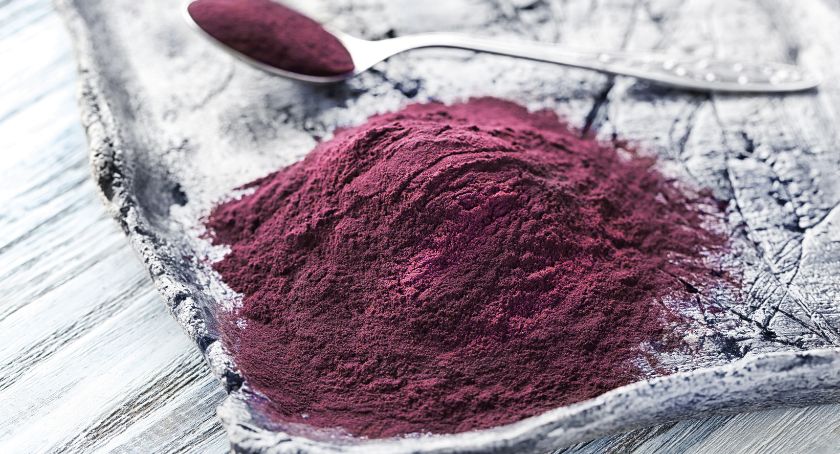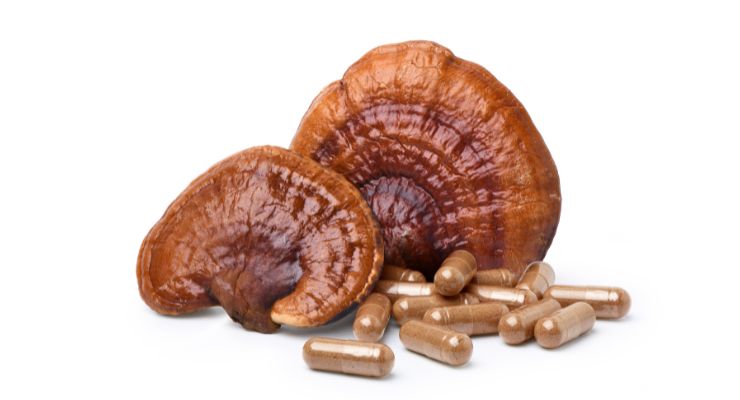Features
Skin Care from the Deep: Understanding the Marine Ingredient Fucoidan
With a rising tide for high-purity, ethically sourced products, algal derivatives like fucoidan can play a starring role in today’s beauty market.
By: Krutika Sen
Business Affairs Manager, Marinova Pty Ltd

With the ocean accounting for approximately 70% of the Earth’s surface, it comes as no surprise that manufacturers are searching its depths for innovative new ingredients. Indeed, a notable surge of interest in marine ingredients has swept across the globe in recent years. From polyphenols to collagen, the beauty industry has adapted to serve the growing number of discerning consumers demanding products that are not only natural and environmentally sustainable but also backed by credible clinical evidence.
Quality algal-derived ingredients satisfy contemporary consumer expectations on all fronts. Fucoidan, a long chain polysaccharide found naturally in the cell walls of brown seaweeds is a prime example. While algae, particularly seaweeds, have a long history of medicinal use in Asian cultures for helping to address everything from inflammation and immunity to gut health and oncology, advancements in technology have now enabled complex algal derivatives like fucoidan to be isolated and extracted for very specific health purposes.1 This focus has given rise to novel bioactive ingredients for both nutritional and topical applications.
What exactly makes algae ingredients so relevant to human health? Over thousands of years, algae have adapted and evolved in order to protect and sustain themselves in harsh and variable aquatic conditions. These extreme marine environments have necessitated the evolution of unique biosynthetic processes that give algae an abundance of nutrients and specialized bioactive compounds. Fucoidan for example, is part of a complex natural defense mechanism for macroalgae, providing protection from viruses and bacteria in the water and preventing damage caused by UV light. Extensive research has shown that fucoidan extracts can impart similar protective effects on the skin. The result is a natural, marine-derived ingredient with proven efficacy in a range of cosmetic and dermatological applications.
Science & Research
Fucoidans are highly branched, complex polysaccharides of varying size, typically with a high molecular weight. They differ in chemical structure and bioactivity depending upon the species of seaweed from which they are derived and the methods by which they are extracted. Australian biotechnology company Marinova specializes in the solvent-free extraction of organic fucoidan compounds from two fucoidan-rich species of brown seaweed: Undaria pinnatifida and Fucus vesiculosus.
The company’s two high purity fucoidan skin care ingredients each have distinct benefits and bioactivities. Maritech Bright is a highly characterized, certified organic fucoidan-polyphenol ingredient extracted from wild grown Fucus vesiculosus seaweed. Developed specifically for topical formulations, common applications include skin brightening and anti-aging. Marine polyphenols and fucoidans naturally protect Fucus vesiculosus against a range of external stresses, including UV damage and marine-borne pathogens and toxins. Maritech Bright delivers these benefits by providing superior antioxidant activity to protect skin from the damaging effects of free radicals.
Clinical studies have shown that high purity, certified organic fucoidans are safe, non-sensitizing and can be highly effective at brightening skin.2 They can enhance radiance and visibly reduce age spot pigmentation. Central to the efficacy of these ingredients is their proven ability to inhibit elastase, collagenase and tyrosinase—key enzymes known to accelerate the visible signs of aging. More specifically, Maritech Bright has been shown to reduce pigment and age spots by 20% in just 60 days, increase brightness (gloss) by 16% in 60 days, and inhibit tyrosinase by 97%. Research has also demonstrated a 32% increase in the SIRT1 anti-aging protein by 32%.2
Specialty fucoidan ingredients have also been developed with clinically proven soothing, protecting and anti-aging properties. Leading high purity fucoidan ingredients on the market, such as Maritech Reverse, deliver proven soothing, protecting and anti-aging properties and are designed to maintain the youthful appearance of skin by protecting its building blocks and enhancing dermal condition.
Both in vitro and human testing have shown potential benefits and biological effects including a reduction in wrinkle depth by 9%, increased skin elasticity by 17%, and inhibition of collagenase and elastase by up to 99%.2-3 High-purity fucoidan extracts have been shown to increase moisture retention by up to 30% following UV exposure and soothe skin by inhibiting myeloperoxidase by up to 99%.2-3
Aside from topical applications, innovative fucoidan producers are now offering multifunctional extracts well suited to the nutricosmetic category. Clinically tested and with twice the antioxidant power of vitamin C, Maritech Synergy is an example of a certified organic fucoidan ingredient with benefits spanning gut health and immune function in addition to delivering demonstrated antioxidant, anti-aging, and anti-inflammation benefits. It is a popular inclusion in nutritional formulations.
Sustaining Quality
A fundamental shift has taken place in recent years with the rise of the ethical consumer. This shift in consumer preferences has provided a powerful wake-up call for any brand committed to longevity. A 2020 retail trend report published by Lightspeed showed that 66% of global consumers are now willing to pay more for sustainable goods that are manufactured with the environment in mind. Sustainably sourced fucoidan fits extremely well into this space.
Extensive research has confirmed that well-managed, wild seaweeds are a rapidly renewable marine resource. The most reputable manufacturers of fucoidan production only source macro algae from the cleanest ocean waters with all harvesting operations conducted in accordance with global best practices. Seaweeds are harvested on an environmentally sustainable basis, avoiding any collection from areas prone to industrial, agricultural, or human contamination.
Manufacturers of fucoidan have traditionally utilized solvents to precipitate the fucoidan polymer from crude extracts, often leading to contaminants being present in the final extract. Fucoidans manufactured in this way may suffer from many shortfalls—inconsistent quality, compromised chemical integrity, and diminished bioactivity.
Contemporary fucoidan extraction technology overcomes these problems. Innovative new techniques are solvent-free and produce fucoidan extracts that remain unadulterated in chemical structure and free from solvent residues.
With rising consumer demand for high-purity products that are certified organic and ethically sourced, the efforts of fucoidan producers committed to quality and sustainability should be highlighted. Reputable fucoidan suppliers should be able to provide clear details about their seaweed harvesting methods, source species, extraction techniques, quality control, scientific credibility, and global regulatory frameworks.
With the future of the beauty industry being shaped by organic products and scientific transparency, fucoidan has risen to the surface as an ingredient of note. High-purity, quality extracts underpinned by an active research and development program will only continue to gain momentum.
References
- Fitton, et al. “Therapies from Fucoidan: New Developments.” Marine Drugs. 2019; 17(10):571.
- Fitton, et al. “Topical Benefits of Two Fucoidan-Rich Extracts from Marine Macroalgae.” Cosmetics. 2015; 2(2):66-81.
- Thring, et al. “Anti-collagenase, anti-elastase and anti-oxidant activities of extracts from 21 plants.” BMC Complement Altern Med 9, 27 (2009).




















